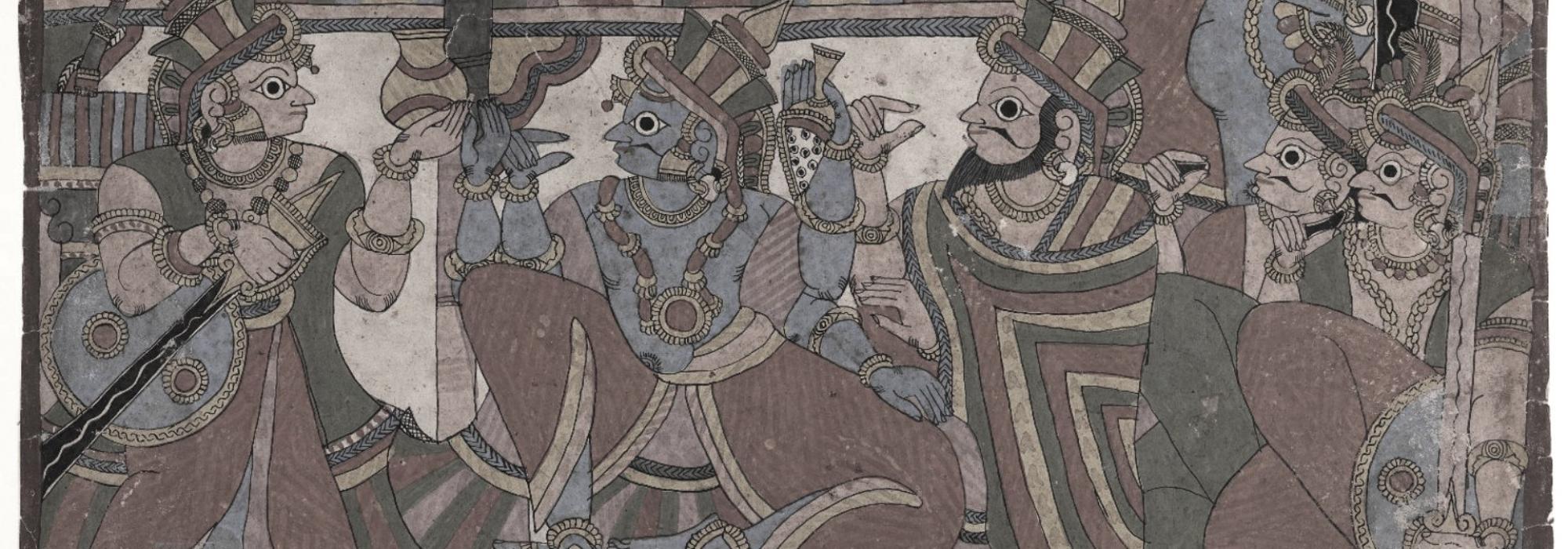Krishna had the qualities of a good statesman – be it eloquence, integrity, intelligence, wit, or the ability to take quick decisions. One can imagine he was a soft-spoken person. He spoke words that were at once pleasant and honest (see BG 17.15). While his words were practical, they were never devious. He never forgot a promise, he never broke a promise. And yet, for the sake of dharma, he was willing to abandon a hundred promises. Krishna had dharma drishti (vision of overall goodness) and the Gita is full of that.
Yudhishtira approaches Krishna and asks him, “Am I worthy enough to perform the rajasuya yajna?” Yudhishtira is himself hailed as the epitome of truth and virtue. And he approaches Krishna because he is confident that Krishna will not tell a lie. Yudhishtira knows that Krishna is always objective, truthful, and encouraging in his words. Just as expected, Krishna doesn’t disappoint. He tells Yudhishtira bitter truths but coated with honey (MB2.12-13).
Later, when Krishna meets the Pandavas in the Dvaita forest, he scolds them for their utter foolishness with regard to the game of dice. He says, “Indeed the Kauravas are evil but you should not have been so foolhardy” (MB 3.13-14).
In the Gita, Krishna says: “Comfort and pain, gain and loss, victory and defeat – treat them in the same spirit and fight; you won’t feel guilty” (BG 2.38). Prior to the war, it is Krishna who goes on a peace mission. He knows that war is inevitable. In fact, before he sets out to Dhritarashtra’s court, he tells Draupadi, “Don’t worry! All your enemies will be destroyed! My words will not fail at any cost” (MB 5.80). Even so, he tries his best to ensure that there is no war. He pretty much knows the outcome, but he does not shy away from the last ditch attempt. Just because he thinks he knows the outcome, he doesn’t give up (see this in light of BG 18.13-16 where he explains that the outcome of any action depends on five factors – the person, the situation, resources available, how the resources are used, and unknown factors).
Having reached Dhrtarashtra’s court to broker for peace (MB 5.93), he begins with sama – reconciliation, amicable discussions, and trying to logically find a solution. He says that the Pandavas have already gone through thirteen grueling years of struggle and it is only fair that they regain what is their due. When that fails, he uses dana – offering incentives, negotiating with materials. He says, “Forget about the kingdom. Just give five villages, or at least one village for the Pandavas.” Duryodhana refuses to give even an inch of land (“not even that which will cover the sharp point of a needle”). Then Krishna uses bheda – creating divisions in the ranks, creating confusions. He accuses Bhishma and Drona of siding with adharma. Then he takes Karna aside and tells him the origin of his birth, thus trying to lure him away from the Kauravas (MB 5.138-41). At every step of statecraft – sama, dana, bheda – he tries his best and went to the maximum possible within that framework. Only when all three failed, he finally resorted to danda – punishment; in this case, war. And even there, he took it to its logical conclusion (see BG 10.38).
To be continued...
















































